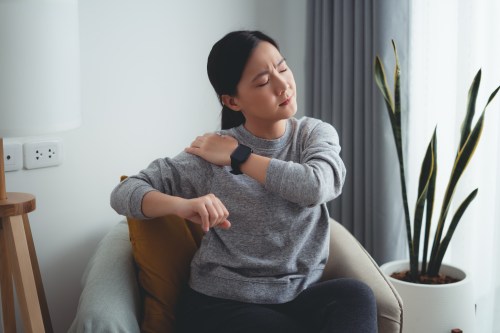February is American Heart Month, but truth be told, your heart deserves attention all year long. And here's something that might stop you in your tracks: Heart disease is the leading cause of death in women. Yet, fewer women today know about this than they did ten years ago.1
Experts in This Article
Director of the Women’s Heart Program at Morristown Medical Center, Atlantic Health System
System Chief of Cardiothoracic Surgery at Main Line Health
founder at DCM Communications
When it comes to heart attacks, you may envision an older man dramatically clutching his chest, like those scenes in the movies. A heart attack happens when blood flow to your heart becomes blocked, causing heart muscle cells to die.
And sure, chest pain is a common symptom of a heart attack. But in people assigned female at birth, the warning signs can be different than their male counterparts—not to mention, much easier to miss.2 Ignoring the signs can be dangerous and deadly if you don’t get help right away. The sooner you can recognize what a heart attack looks like, the faster treatment can begin.
So, let’s talk about what heart attacks look like in women. Because knowing the signs could save your life—or someone else’s.
How (and why) are heart attack symptoms different in women?
For starters, “women are not just small men,” Amy Ahnert, MD, Director of the Women's Heart Program at Morristown Medical Center, Atlantic Health System, tells Well+Good. Women have different biology, hormones, and even smaller blood vessels, she explains. And these biological differences really do matter in terms of which symptoms women are likely to develop.
Even the way cholesterol builds up in arteries can look different depending on your sex. Men typically develop blockages in their main heart arteries. But, women tend to develop plaques (aka fatty substances in your arteries made up of cholesterol and calcium) in the smaller blood vessels.
Now, it's worth noting that the most common symptom regardless of sex is chest pain or tightness, according to Basel Ramlawi, MD, System Chief of Cardiothoracic Surgery at Main Line Health. It can feel like an elephant sitting on your chest and you may break into a sweat. This chest pain may come on with exercise, after a big meal, or some kind of unusual physical activity, Ramlawi adds.
But other symptoms of a heart attack in women can be much more subtle and easier to brush off (more on those symptoms later). Many women don't recognize these signs may point to a heart attack, which means they may wait longer to get help. And when they do seek medical care, healthcare providers may dismiss women’s symptoms as anxiety, which can delay treatment even further.
Dr. Ahnert points out that women are more likely to call 911 for their male partner's heart attack symptoms than for their own. Between managing family responsibilities and work, women tend to put their own health last, Dr. Ramlawi adds. “They may be juggling multiple things simultaneously, so they brush off their health and ignore their cardiac symptoms,” he adds.
This delay can have serious consequences. Plus, women who have heart attacks and heart disease tend to have worse outcomes than men, Dr. Ahnert explains. When warning signs don't look like the dramatic chest pain we see in movies, they're more likely to get overlooked.
“In cardiology, we have a saying: Time is muscle,” Dr. Anhert says. This means that during a heart attack, every minute without treatment causes more heart muscle cells to die from lack of blood flow. The faster you get medical care, the more heart muscle you can save, and the better your chances of recovery.
Heart attack symptoms in women
So if chest pain isn't the only indicator of a heart attack, what do you need to look for? Here are the most common heart attack symptoms in women to know:
- Pain or discomfort: It might show up in one or both arms, back, neck, jaw, or even your stomach. Some women describe the upper back pain as feeling like someone's tying a rope around them.
- Breaking into a cold sweat: And we're not talking about your usual post-workout glow. This is different, unexpected, and often comes with other symptoms.
- Nausea or an upset stomach: That queasy feeling you might blame on bad takeout could be more serious, especially if it comes with other symptoms.
- Shortness of breath: If you're suddenly winded by your usual activities or feeling breathless while resting, pay attention. This can happen with or without chest pain.
- Unusual fatigue: This is not your typical end-of-day fatigue. This is an overwhelming, unusual exhaustion and weakness that doesn't go away with rest.
- Lightheadedness or anxiety: Feeling dizzy or unusually anxious for no clear reason? Don't brush it off.
One woman's heart-wrenching experience
Heart attacks in women don't always announce themselves in obvious ways.
Take it from Channing Muller, founder at DCM Communications, who had her first heart attack at age 26. Yup, we said “first” because she had a second heart attack about a month later. She was active, just completed a three-day walk for a cure where she walked 60 miles, training for a half marathon, and feeling great. One weekend morning, after a night out, she got up thinking she'd head to the gym. “I took one step out of my bed, and my heart just started racing uncontrollably,” Muller tells Well+Good. “I broke out into a sweat.”
She felt lightheaded, tingly all over, and when she looked in the mirror, she’d lost all color. “My heart was racing so fast, you would have thought I just sprinted down the street, except I'd taken about four steps,” she says. At first, she wondered if it was just a weird hangover. She tried taking deep breaths but could only manage one deep breath followed by several short ones.
Desperate to feel better, she crawled back to bed, hoping the symptoms would pass. They didn’t. That’s when it hit her: Something is seriously wrong. Even then, it never occurred to her that she was having a heart attack. It wasn’t until after several hours and tests in the emergency room that she got her diagnosis. That's why recognizing the signs that women can have is so essential.
Risk factors of a heart attack
Many of the traditional risk factors for heart attacks, such as smoking, obesity, high blood pressure, sedentary lifestyle, high cholesterol, and diabetes, apply to everyone. But women also face unique risks that often go unrecognized.
Complications during pregnancy
Pregnancy complications are a major one. For example, did you experience gestational hypertension (high blood pressure in pregnancy), preeclampsia (a form of severe high blood pressure in pregnancy), gestational diabetes, or a preterm birth? Any of these could increase your risk of heart disease, Dr. Ahnert explains. Preeclampsia alone can even quadruple a woman’s risk of a heart attack within 10 years after giving birth.3
Other underlying health conditions
Other risk factors unique to women include autoimmune diseases like lupus or rheumatoid arthritis, certain breast cancer treatments, and mental health conditions such as depression and anxiety, Dr. Anhert notes. A review of studies published in the Journal of Women’s Health suggests endometriosis might also increase heart disease risk, though more research is still needed.4
“Unfortunately, traditional tools physicians use to assess a patient’s cardiovascular risk may underestimate risk in women,” Dr. Anhert explains. But newer tools like calcium score tests (which measure the amount of calcium buildup in your heart's arteries) and other heart scans can do a better job of predicting a woman's risk.
When to see a healthcare provider
Heart attack (and other cardiovascular events) don't wait, and neither should you. You should have yearly checkups to screen for risk factors like high blood pressure, diabetes, and high cholesterol. And don't forget to bring up those other unique risk factors we mentioned earlier, like pregnancy complications or autoimmune conditions. Your healthcare provider needs the full picture to help care for your heart.
If you experience symptoms like chest pain, pressure, tightness, dizziness, extreme fatigue, sweating, or shortness of breath, don’t second-guess yourself—call 911. Emergency responders can begin life-saving treatment on the way to the hospital and alert the emergency department before you arrive. Driving yourself or waiting it out could cost precious time.
“All too often, I hear women tell me they didn’t want to ‘be a bother’ or ‘feel embarrassed or stupid’ for going to the emergency room. They were afraid of being told it's anxiety," Dr. Anhert says. Trust your body and seek immediate medical help if something does not feel right. Doing so can save your life.
The bottom line
Heart-related events like a heart attack can be prevented in most cases, but prevention starts with you. Get those regular check-ups, stay active, eat heart-healthy foods, and don't ignore your mental health. It's not selfish to take care of yourself, Dr. Anhert reminds us. Many women may put everyone else first, but your heart health deserves to be a priority, so it's imperative to be your own advocate.
Speaking of being your own advocate, don't let the fear of being wrong stop you from seeking help, Muller advises. “I'd rather go to the emergency room and find out it was just anxiety than not go and find out too late it was a heart attack,” she says. If something feels off, especially if it's different from what you normally experience, speak up. Your life could depend on it.
- Cushman, Mary et al. “Ten-Year Differences in Women's Awareness Related to Coronary Heart Disease: Results of the 2019 American Heart Association National Survey: A Special Report From the American Heart Association.” Circulation vol. 143,7 (2021): e239-e248. doi:10.1161/CIR.0000000000000907 ↩︎
- Brush, John E Jr et al. “Sex Differences in Symptom Phenotypes Among Older Patients with Acute Myocardial Infarction.” The American Journal of Medicine vol. 135,3 (2022): 342-349. doi:10.1016/j.amjmed.2021.09.022 ↩︎
- Hallum, Sara et al. “Risk and trajectory of premature ischaemic cardiovascular disease in women with a history of pre-eclampsia: a nationwide register-based study.” European Journal of Preventive Cardiology, zwad003. 26 Jan. 2023, doi:10.1093/eurjpc/zwad003 ↩︎
- Okoli, Unoma et al. “Endometriosis and Risk of Cardiovascular Disease: Systematic Review and Meta-Analysis.” Journal of Women's Health vol. 32,12 (2023): 1328-1339. doi:10.1089/jwh.2023.0091 ↩︎
Sign Up for Our Daily Newsletter
Get all the latest in wellness, trends, food, fitness, beauty, and more delivered right to your inbox.
Got it, you've been added to our email list.











